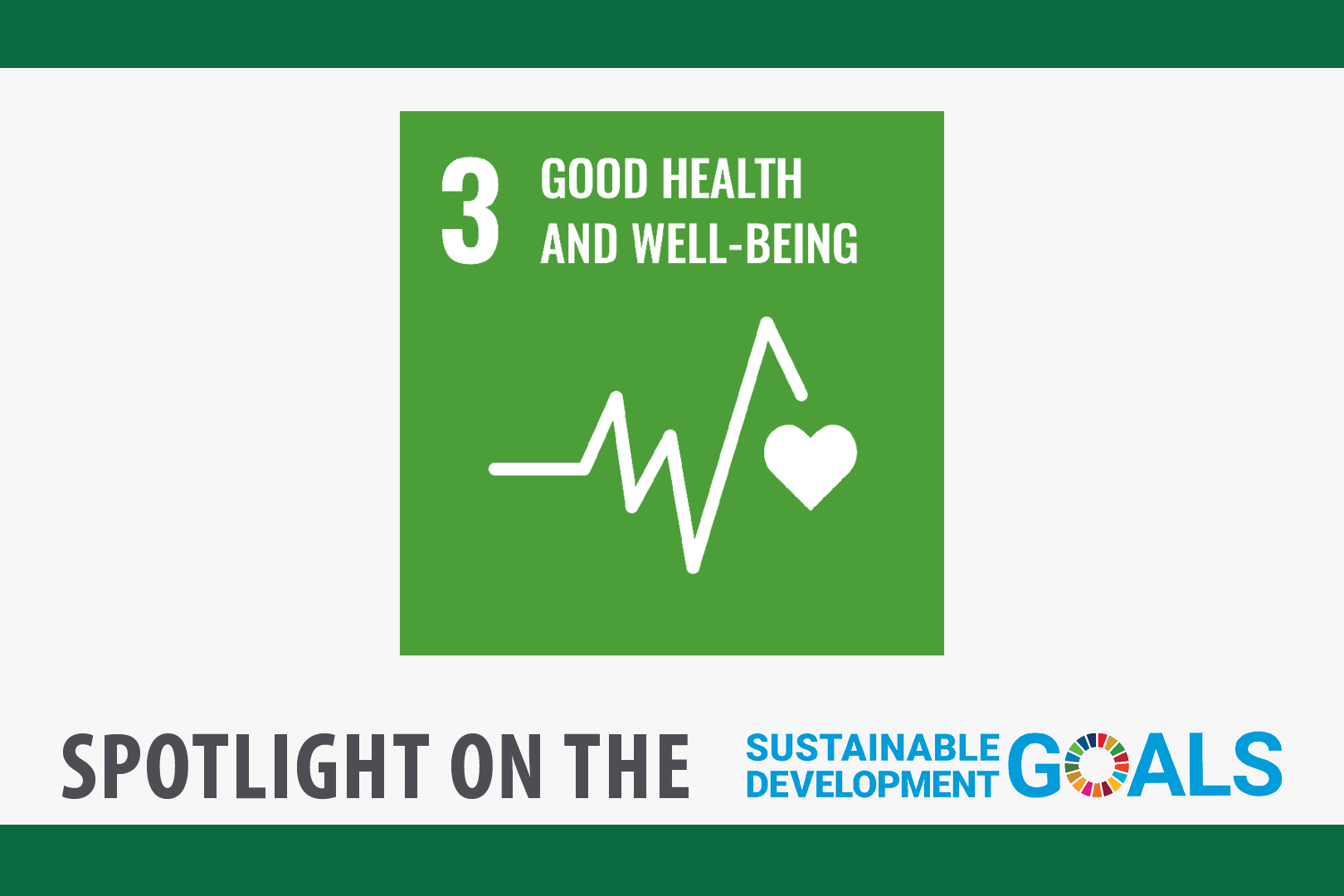
SDG Spotlight: Goal 3
Ensure healthy lives and promote well-being for all at all ages.
Ensuring healthy lives and promoting well-being at all ages is essential to sustainable development. The COVID-19 pandemic continues to spread human suffering.
As of mid-2022, COVID-19 had infected more than 500 million people worldwide. The latest estimates show that global “excess deaths” directly and indirectly attributable to COVID-19 could have been as high as 15 million by the end of 2021.
The pandemic has severely disrupted essential health services, triggered an increase in the prevalence of anxiety and depression, lowered global life expectancy, derailed progress towards ending HIV, tuberculosis (TB) and malaria, and halted two decades of work towards making health coverage universal.
As a result, immunization coverage dropped for the first time in 10 years, and deaths from TB and malaria increased. Urgent and concerted action is needed to set the world back on a trajectory towards achieving Goal 3.
SOURCE
-
There has been some progress on improving global health in recent years. For example, 146 out of 200 countries or areas have already met or are on track to meet the SDG target on under-5 mortality. Effective HIV treatment has cut global AIDS-related deaths by 52 per cent since 2010 and at least one neglected tropical disease has been eliminated in 47 countries.
-
However, insufficient progress has been made in other areas, such as on reducing maternal mortality and expanding universal health coverage. Globally, approximately 800 women died every day from pregnancy or childbirth in 2020. And 381 million people were pushed or further pushed into extreme poverty in 2019 due to out-of-pocket payments for health.
-
The COVID-19 pandemic and ongoing crises have impeded progress towards Goal 3. Childhood vaccinations have experienced the largest decline in three decades, and tuberculosis and malaria deaths have increased compared with pre-pandemic levels.
-
To overcome these setbacks and address long-standing health care shortcomings, increased investment in health systems is needed to support countries in their recovery and build resilience against future health threats.
SOURCE


